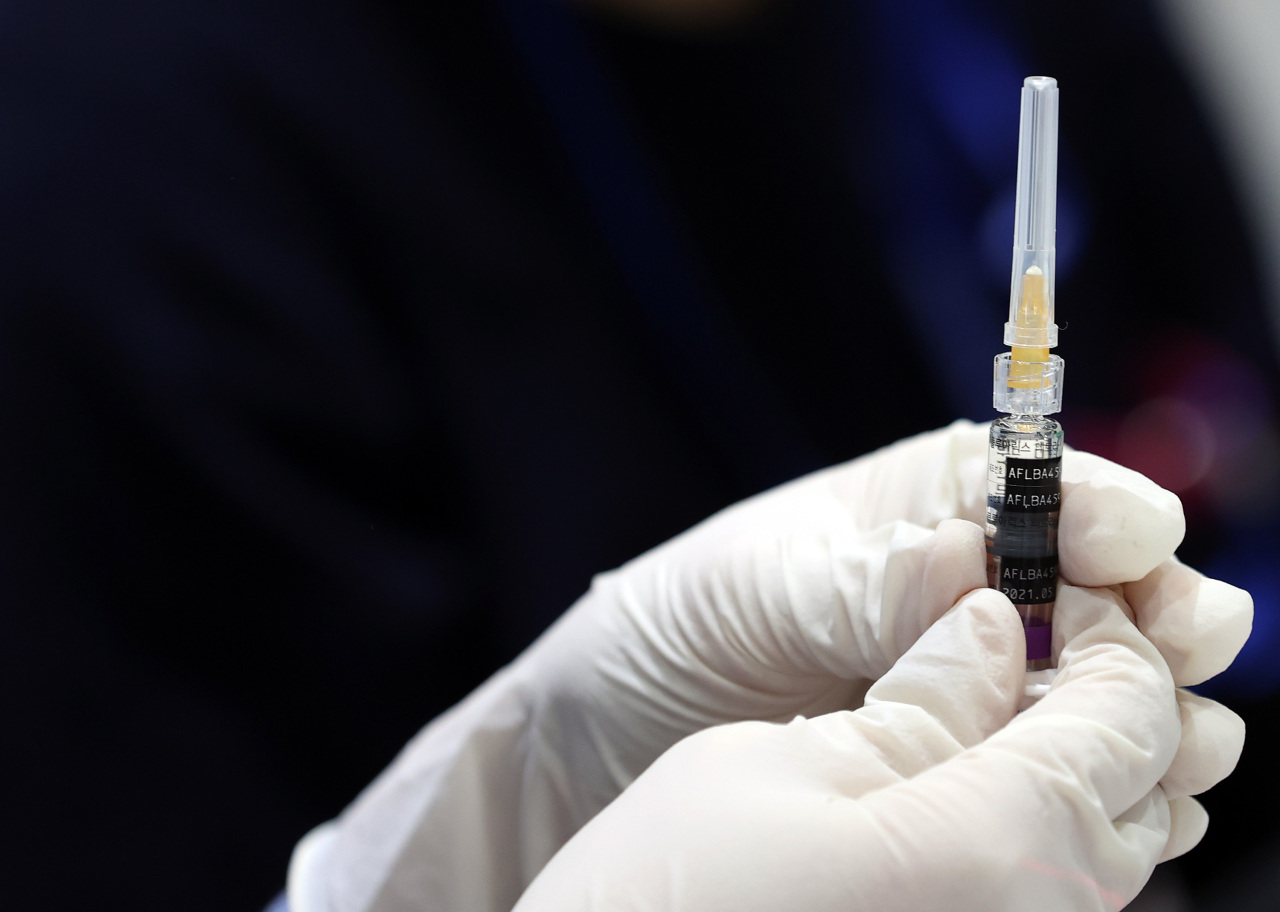Reports of deaths after flu vaccinations continue to climb in South Korea, as the government investigates a potential link to contamination or improper handling of vaccines.
The Korea Disease Control and Prevention Agency said in Wednesday’s press briefing that based on preliminary findings, a link to earlier cases of contaminated or improperly stored flu vaccines was “unlikely.” Since the briefing, municipal offices across the country have reported a total of 25 deaths as of Thursday afternoon. So far, the agency has identified 13 of those deaths as having suspected ties to the flu vaccines.
The unexplained fatalities come after more than 1 million flu vaccines were recalled earlier due either to handling errors or contamination.
The Korean Medical Association said in a press conference Thursday afternoon that it is better to put off flu vaccinations until the investigations prove that there are no safety issues. The public health authorities have said the findings would be available in about a week’s time.
“There is no question flu protection is more crucial than ever this winter. But a vaccine must first and foremost be safe,” said the group’s chief, Dr. Choi Dae-zip. He also cited ethical concerns about having medical professionals administer vaccines whose safety is uncertain.
Opposition lawmakers of the parliamentary committee for health and welfare called for similar measures in a statement released earlier that morning, urging the government to review suspending flu vaccinations.
“The forensic inspections so far have listed the cause of death as unknown. With authorities unable to identify the causes, the public anxiety is growing over the rise in reported deaths,” the statement read.
With only limited information available, experts are cautious about giving definitive answers. But they also worry that this year’s highly unusual set of circumstances could negatively affect public attitudes toward vaccination.
That being said, coming down with the flu or a cold this year is particularly risky as it coincides with the ongoing novel coronavirus pandemic, according to pediatric infectious disease specialist Dr. Eun Byung-wook. Common flu and cold symptoms such as cough and fever are also the hallmark symptoms of COVID-19.
Patients displaying coronavirus-like symptoms are asked to present negative test results at most clinics and hospitals. This extra step leads to care being delayed, which can worsen outcomes even in relatively healthy individuals.
Eun said while uncertainties remain with this year’s batch of flu vaccines, immunizing against the flu is important amid the pandemic.
Younger children -- for whom COVID-19 tends to be mild -- are at high risk of developing serious complications from flu. Neuropsychiatric side effects from oseltamivir, more widely known here by the brand name Tamiflu, are also believed to be more common among adolescents.
He added, “I hesitate to say anything decisive about their safety at this point. Not all of the vaccines exposed to heat have been withdrawn. But getting vaccinated is the better choice unless investigations reveal otherwise.”
Preliminary examinations on the 17-year-old determined his cause of death to be unknown, the police said Monday, quoting the National Forensic Service analysis.
Virologist Dr. Paik Soon-young, a professor emeritus at the Catholic University of Korea’s college of medicine, said with the exception of the Incheon teen and the Seoul woman in her early 50s, all the reported deaths occurred in people in their 60s or older.
“Older adults, pregnant women, children aged between 6 months and 5 years of age are the primary target population for flu vaccination. For them, failing to be vaccinated can be more hazardous,” he said.
“But at the same time, it seems they are the ones that could be more severely affected by the vaccines in question -- our understanding of which is very limited as we speak.”
He also pointed out that the public health authorities may have been too quick to rule out the heat-exposed vaccines as the main cause when the first deaths were reported in the last week of September.
Three residents at a nursing home in Incheon, all in their 80s and 90s, had died in the span of three days following vaccination. The vaccines they received were distributed by a company that was accused of cold chain breaches.
“While it’s true that more deaths are happening than usual, the fact that the public health authorities decided to proceed with the vaccinations must mean the risks are assessed to be low,” he added.
Infectious disease expert Dr. Kim Woo-joo of Korea University Medical Center in Guro, southern Seoul, said the stress surrounding the flu vaccinations may contribute to a higher likelihood of adverse events in older people.
Since the free jab program for people aged 62 or older began Monday, some 2.9 million people rushed to get their shots over just two days following news of shortages of vaccines.
“The elderly should be accompanied on their trip to and from the doctor’s office. Make sure they can be seated in a warm space while waiting. After vaccination, allow them to take a rest for about half an hour before they leave. And all of this should proceed in a socially distanced manner,” he said.
By Kim Arin (
arin@heraldcorp.com)







![[Weekender] Korea's traditional sauce culture gains global recognition](http://res.heraldm.com/phpwas/restmb_idxmake.php?idx=644&simg=/content/image/2024/11/21/20241121050153_0.jpg)
